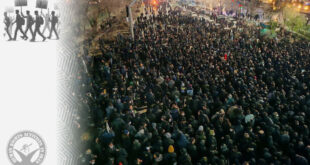France hosts talks at the weekend between Lebanon’s fractious leaders to try to ease a political deadlock that has plunged the nation into its worst crisis since the end of the civil war.Foreign Minister Bernard Kouchner on Saturday welcomes representatives of 14 political factions including the opposition Shiite Hizbollah, which is backed by Syria and Iran and branded a terrorist group by the United States.
Hizbollah is sending former Cabinet member Mohammad Fneish to take part in the meeting alongside members of the Western-backed government of Prime Minister Fuad Siniora.
While the meeting allows France to show its commitment to Lebanon, its closest ally in the Middle East, no major breakthrough is expected during the talks held at the Chateau de La Celle Saint-Cloud on the western edge of Paris.
French officials say they hope the informal talks, away from the media glare, will produce a relaxed atmosphere that could mark the beginning of restored dialogue.
“The objective is that discussions are held and that they be useful,” said foreign ministry spokesman Pascale Andreani, emphasising that “all of the parties can talk among themselves as they see fit”. The meeting will focus on the theme of “strengthening the Lebanese state”, eight months after six pro-Syrian ministers quit the Cabinet, triggering the worst crisis since the end of the 1975-1990 civil war.
Fears are running high that the crisis could deteriorate if no deal is struck before the election by parliament in late September of a successor to pro-Syrian President Emile Lahoud.
France has taken a leading role in trying to restore stability to Lebanon, with Kouchner travelling to Beirut in May for his first foreign trip after taking office.
All of the Lebanese groups have welcomed the French initiative.
Hizbollah said it would take part even after President Nicolas Sarkozy’s office called on the faction to “renounce terrorism”. Sarkozy last week told family members of three kidnapped Israeli soldiers that his “goal was that Hizbollah renounces the use of terrorism and becomes once again a political party like the others and part of parliamentary democracy”, according to spokesman David Martinon.
“Hizbollah’s presence in Paris will mark the occasion to deliver this message to its representatives,” Martinon said.
But Martinon later clarified his statement, saying that France was not considering designating Hizbollah a terrorist group.
“Hizbollah is an important political actor in Lebanon. It is one of the components of the national dialogue,” he said.
Jewish groups in France have criticised the participation of Hizbollah, accusing it of having carried out deadly attacks dating back to the early 1980s when dozens of French soldiers were killed.
Lebanese Prime Minister Siniora said last month that “expectations are not extremely high for this meeting” because participation was not at the top level.
Analyst Barah Mikail at the French Institute of International and Strategic Studies agreed that prospects for progress were dim, but said that France nevertheless had leverage.
“If Washington had hosted the talks, the opposition would have refused the invitation. France for the time being does have a certain credibility in terms of developments in Lebanon,” said Mikail.
Kouchner is due to hold a news conference on Monday morning at the end of the talks.
 Eurasia Press & News
Eurasia Press & News


